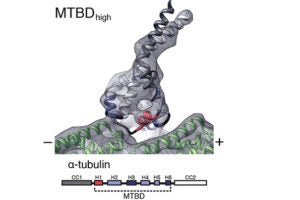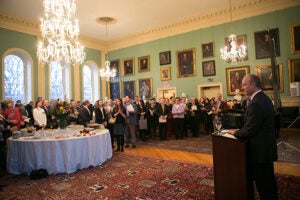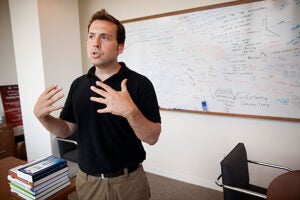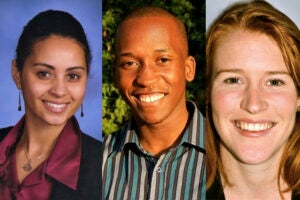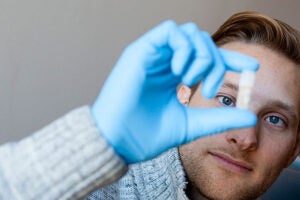Tag: Peter Reuell
-
Nation & World
Q&A with Matthew Nock
Professor of Psychology Matthew Nock is the author of a new paper, co-authored with other Harvard faculty, which examines suicidal thoughts and behaviors among adolescents. In a recent conversation with the Gazette, Nock discussed his research, and the resources available at Harvard for students and others in the community.
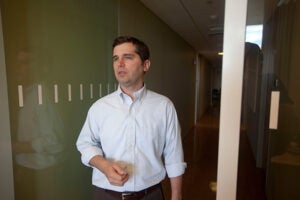
-
Nation & World
First Santiago Ramón y Cajal Professor is named
Jeff Lichtman, the Jeremy R. Knowles Professor of Molecular and Cellular Biology, has been appointed as the first Ramón y Cajal Professor of Arts and Sciences.
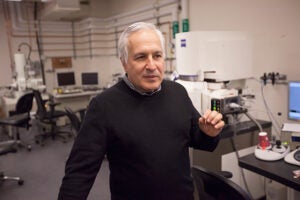
-
Nation & World
Linking insulin to learning
Work led by Yun Zhang, associate professor of organismic and evolutionary biology, shows how the pathway of insulin and insulinlike peptides plays a critical role in helping to regulate learning and memory.

-
Nation & World
New leader in teaching, learning
Robert A. Lue has been named the Richard L. Menschel Faculty Director of the Derek Bok Center for Teaching and Learning, placing him at the forefront of efforts to rethink teaching and learning, both on campus and off.
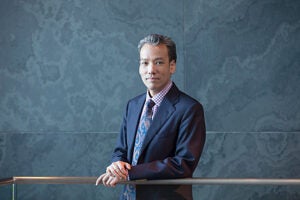
-
Nation & World
Weather warning
A report co-authored by Professor Michael McElroy and D. James Baker, a former administrator of the National Oceanic and Atmospheric Administration, connects global climate change, extreme weather, and national security.
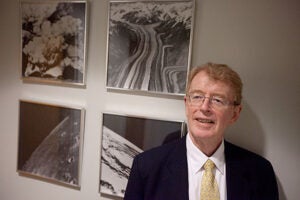
-
Nation & World
Go with your gut
Peter Turnbaugh and co-authors Corinne Ferrier Maurice and Henry Joseph Haiser show that as drugs are administered, the activity of human gut microbes can change dramatically. Understanding how those changes affect drug chemistry could help researchers to design drugs that work more effectively and antibiotics that more specifically target pathogens.
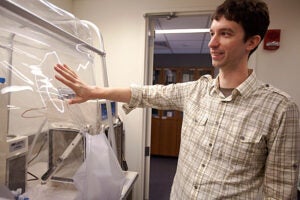
-
Nation & World
Robots with lift
Using small explosions produced by a mix of methane and oxygen, researchers at Harvard have designed a soft robot that can leap as much as a foot in the air. That ability to jump could one day prove critical in allowing the robots to avoid obstacles during search and rescue operations.
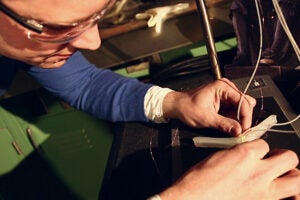
-
Nation & World
A break for exploration
For the hundreds of students in Harvard’s Graduate School of Arts and Sciences, January offered a chance to let their hair down and explore topics they might otherwise never contemplate, from questions of race in Quentin Tarantino’s films to the production of nano-materials to fabricating a hand-crank generator.
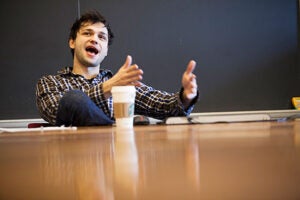
-
Nation & World
Competition that computes
It might appear that evacuating a major city following a natural disaster and playing foosball have little, if anything, in common. For students participating in the IACS Computational Challenge, however, both are problems that can be tackled with some clever coding.
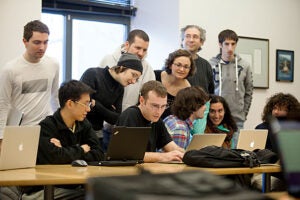
-
Nation & World
When fairness prevails
Using computer simulations designed to play a simple economic “game,” researchers at Harvard’s Program for Evolutionary Dynamics showed that uncertainty is a key ingredient behind fairness. Their work is described in a Jan. 21 paper in the Proceedings of the National Academy of Sciences.
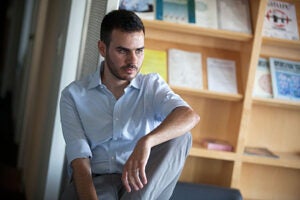
-
Nation & World
Watching teeth grow
For more than two decades, scientists have relied on studies linking tooth development in juvenile primates with their weaning as a rough proxy for understanding similar landmarks in the evolution of early humans. New research from Harvard, however, challenges that thinking by showing that tooth development and weaning aren’t as closely related as previously thought.
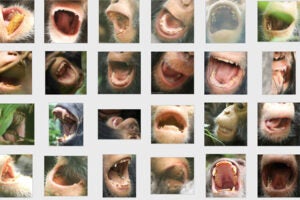
-
Nation & World
A hidden genetic code
For decades, scientists wondered whether there was some subtle difference between parts of the genetic code that, while different, appear to encode the same amino acid. Harvard researchers now have the answer.
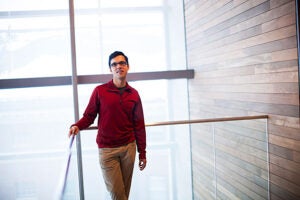
-
Nation & World
Digging yields clues
As described in a Jan. 16 paper in Nature, a team of researchers led by Hopi Hoekstra, professor of organismic and evolutionary biology and molecular and cellular biology, studied two species of mice – oldfield mice and deer mice – and identified four regions in their genome that appear to influence the way they dig…
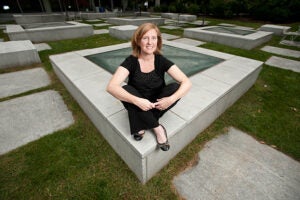
-
Nation & World
One cell is all you need
Scientists at Harvard have pioneered a breakthrough technique that can reproduce an individual’s entire genome from a single cell. The development could revolutionize everything from cancer treatment, by allowing doctors to obtain a genetic fingerprint of a person’s cancer early in treatment, to prenatal testing.
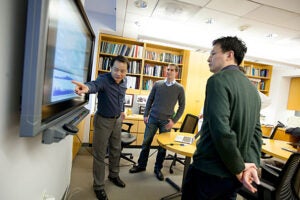
-
Nation & World
Sniff mechanics
As described in a Dec. 19 paper in Neuron by Venkatesh Murthy, a professor of molecular and cellular biology, researchers have, for the first time, shed light on how the neural feedback mechanism of the olfactory system works by identifying where the signals go, and which type of neurons receive them.
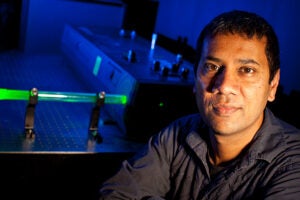
-
Nation & World
Corn in a changing climate
Harvard researchers have concluded that omitting the adaptive ability of crops from assessments of potential damages from a warming climate could substantially overestimate losses to U.S. maize yields.
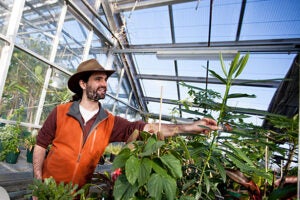
-
Nation & World
Solving a biological mystery
A team of Harvard researchers has shown that insects like crickets possess a variation of a gene — called oskar — that is critical to the production of germ cells in “higher” insects. That discovery suggests that the oskar gene emerged far earlier in insect evolution than researchers previously believed.
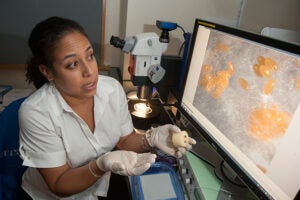
-
Nation & World
Two named Marshall Scholars
Harvard senior Aditya Balasubramanian and recent graduate Alex Palmer are among 34 students nationwide who were recently awarded Marshall Scholarships.
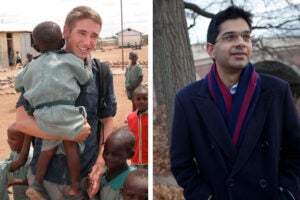
-
Nation & World
Ancient Iraq revealed
Jason Ur, the John L. Loeb Associate Professor of the Social Sciences, earlier this year launched a five-year archaeological project — the first such Harvard-led endeavor in the war-torn nation since the early 1930s — to scour a 3,200-square-kilometer region around Irbil, the capital of the Kurdish region in northern Iraq, for the signs of…
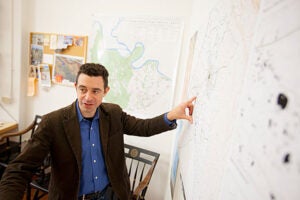
-
Nation & World
Sophisticated worms
In a new study of worm locomotion, researchers show that a single type of motor neuron drives an entire sensorimotor loop.
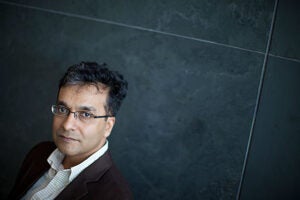
-
Nation & World
Rhodes selects six Harvard students
Six Harvard undergraduates are among the 32 American men and women chosen as Rhodes Scholars on Sunday. They will begin their studies at the University of Oxford in October 2013.
-
Nation & World
Intelligent Earth
Once its axis tilts, how does the Earth “know” to return to its normal orientation? Work by Harvard researchers provides some answers.
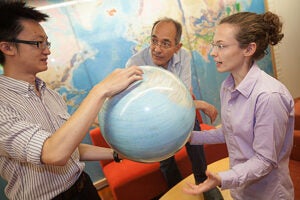
-
Nation & World
Unearthing a dietary behavior
A new Harvard study says that pica — and particularly geophagy, or the eating of soil or clay — is far more prevalent in Madagascar, one of the few areas of the world where it had gone unreported, than researchers previously thought. The research also suggests that the behavior may be more prevalent worldwide, particularly…
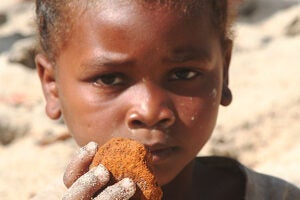
-
Nation & World
Growing community for students
At the start of the fall semester, the popular Graduate Commons program was expanded to include two additional buildings, more than doubling the number of units included in the program.

-
Nation & World
Molecular motion in detail
In a critical breakthrough in unraveling how molecular “motors” ferry proteins and nutrients through cells, Harvard scientists have produced high-resolution images that show how the chemical “foot” of dynein — one of the most complex, but least understood such motors — binds to microtubules, the cellular structures it travels on.
